Mexico’s midterms elections could be a turning point for Mexican citizens to demand a robust, diligent, and determined top-level response to crime in the country, writes Vanda Felbab-Brown. This article was originally published within the Mexico Institute’s 2021 Election Guide, a blog of the Woodrow Wilson International Center for Scholars.
Two of the profound issues at stake in Mexico’s midterms elections are public safety and the rule of law in the country. Whether or not Mexican voters again give President Andrés Manuel López Obrador (known as AMLO) a supermajority in the Chamber of Deputies in the Mexican Congress may not directly influence the country’s anti-crime policies. However, the elections could be a turning point for Mexican citizens to demand a robust, diligent, and determined top-level response to crime in the country. How AMLO’s MORENA fares in governor races and municipal elections will profoundly impact local security.
President López Obrador has sought to break with the anti-crime policies of his predecessors by adopting a strategy of “hugs, not bullets.” Instead of confronting Mexico’s violent criminal groups, he claims to be addressing Mexico’s immensely violent criminality, that has been claiming the lives of over 30,000 Mexicans year after year, through a network of socio-economic and redistribution programs. Decreasing the emphasis on the problematic and counterproductive high-value targeting approach that dominated the prior administrations is appropriate. However, this move should have implemented alongside improved law enforcement strategies.
Instead, the Mexican president has essentially given up on law enforcement responses to criminal violence and has abdicated countering criminal groups. Even in the face of violent takeovers of towns by organized crime groups, most notoriously by the Sinaloa Cartel in Culiacán in October 2019, or of crime group attacks on police stations, President López Obrador merely praised the military and police forces for taking no action.
Despite the ominous brazenness of organized crime and the debilitating violence, law enforcement institutions have been either weakened or diverted to other functions during the López Obrador administration’s first two and half years.President López Obrador dismantled the Federal Police, the most effective, if imperfect, law enforcement tool Mexico had. Drawn mainly from the military, the National Guard that the Mexican president established instead continues to fall short in accountability, strategy, tactics, and effectiveness.
Will Mexican voters use the midterms to start demanding better public safety? If not, will they organize after the midterms to demand that the Mexican government starts again focusing on public safety issues?
Unsurprisingly, criminal groups have only become more emboldened. Moreover, while Mexican voters consider whether or not to vote on the lack of government attention to public safety, Mexican criminal groups actively seek to shape the elections. Between September 2020 when campaigning began, and May 2021, at least 88 Mexican politicians have been killed, making it the most violent electoral cycle in modern Mexican history.
Assassinations of politicians are not new in Mexico, and sometimes political rivals hire criminal groups for such hits. However, for the past two decades, criminal groups have increasingly sought to dictate their terms to politicians and, through illicit money and coercion, promote the politicians who advance their agendas and eliminate their rivals, particularly at the municipal level in towns with scant government presence and strong criminal rule. Mexican criminal groups have moved far beyond merely seeking to intimidate and capture politicians who are elected. They actively and violently seek to shape who is elected in the first place to do their bidding.
Even as Mexico suffers from the terrible public health consequences and economic devastation of the COVID-19 pandemic, it must not drop the public safety agenda. Even social inclusion policies will be hampered and eviscerated if criminals remain emboldened to act with brazen violence, feel no restraint in whom they extort, and penetrate and infiltrate both national-level institutions and local governments.
The Brookings Institution is committed to quality, independence, and impact.
We are supported by a diverse array of funders. In line with our values and policies, each Brookings publication represents the sole views of its author(s).
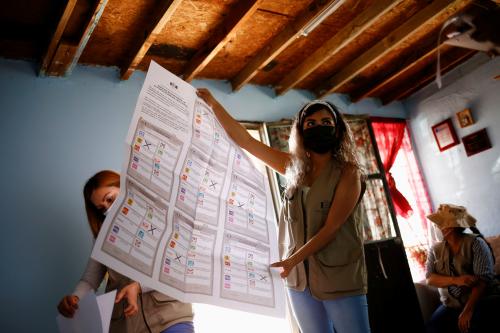
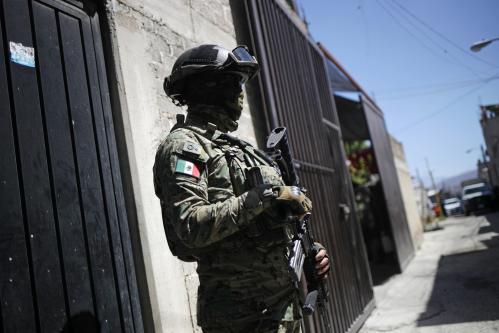
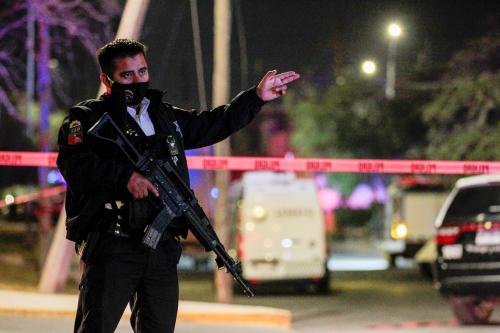

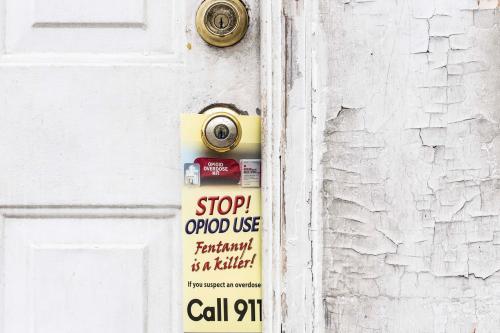
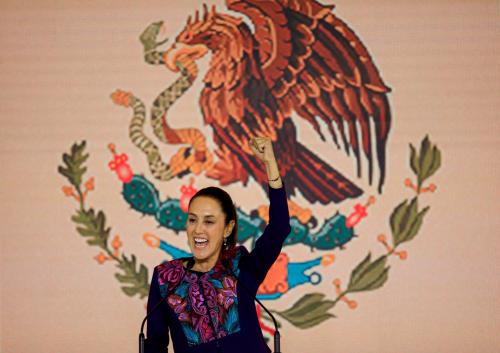
Commentary
Op-edWill Mexican voters start demanding that elected officials pay attention to public safety?
June 4, 2021